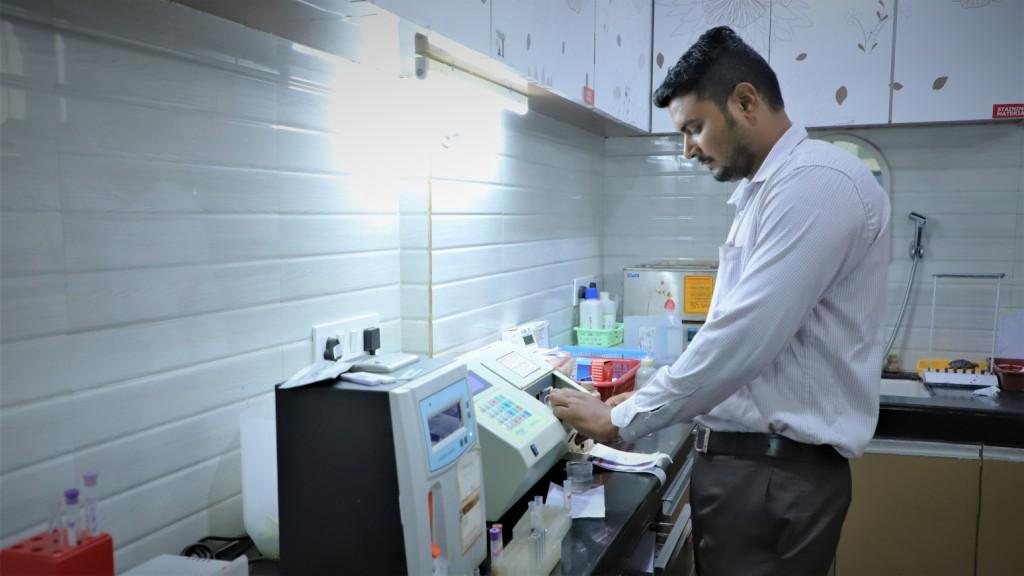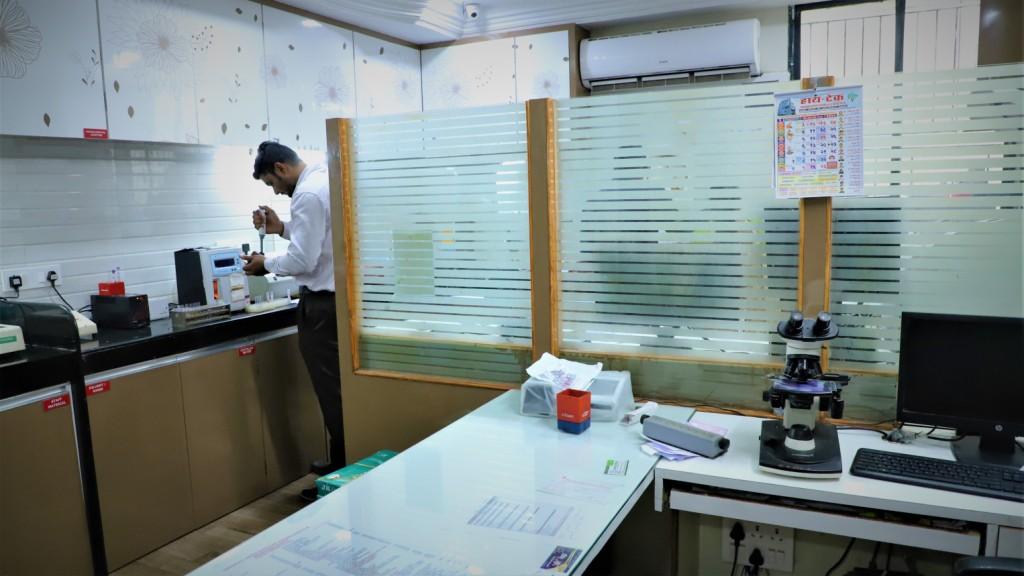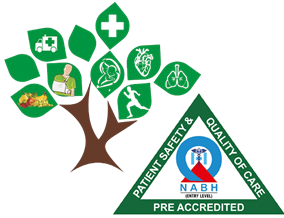Laboratory services
 Laboratory services at Hitech Hospital provide service 24 hours a day and 7 days a week with a primary focus that ‘patients come first’, reporting results that help provide answers for physicians and patients. Through the application of leading-edge technology, the laboratory services at Hitech Hospital prides itself on providing rapid turnaround time, affordable inpatient & outpatient testing and superior customer service.
Laboratory services at Hitech Hospital provide service 24 hours a day and 7 days a week with a primary focus that ‘patients come first’, reporting results that help provide answers for physicians and patients. Through the application of leading-edge technology, the laboratory services at Hitech Hospital prides itself on providing rapid turnaround time, affordable inpatient & outpatient testing and superior customer service.
Clinical Microbiology And Serology
 The Division of Clinical Microbiology at Hitech hospitals offers a broad selection of tests designed for rapid identification of the causative agents of infectious diseases and prompt reporting of results. Our laboratory has implemented culture techniques, and immunoassays for rapid detection and identification of common as well as unusual microbial pathogens. Serologic testing is also available for confirmation of infections by demonstrating the presence of specific antibody responses.
The Division of Clinical Microbiology at Hitech hospitals offers a broad selection of tests designed for rapid identification of the causative agents of infectious diseases and prompt reporting of results. Our laboratory has implemented culture techniques, and immunoassays for rapid detection and identification of common as well as unusual microbial pathogens. Serologic testing is also available for confirmation of infections by demonstrating the presence of specific antibody responses.
Other features
- The department is actively involved in infection control activities of the hospital.
- Complete range of organism identification and susceptibility testing for bacteria, mycobacteria and fungi.
- Qualitative and quantitative detection of hepatitis B virus
- Consolidated Infectious Disease Serology Laboratory (bacterial and viral infections).
Clinical Biochemistry
 The Biochemistry department is a third-generation laboratory, well-equipped with latest state of the art technology to perform not only the routine biochemical tests but also a wide variety of super specialized investigations such as tumour markers, therapeutic drug monitoring, screening tests for foetal anomalies, cardiac markers and many more. Special emphasis is given on quality by maintaining uncompromising stringent control protocols.
The Biochemistry department is a third-generation laboratory, well-equipped with latest state of the art technology to perform not only the routine biochemical tests but also a wide variety of super specialized investigations such as tumour markers, therapeutic drug monitoring, screening tests for foetal anomalies, cardiac markers and many more. Special emphasis is given on quality by maintaining uncompromising stringent control protocols.
Metabolic Diseases Laboratory
- Genetic disorders play an increasingly greater role in clinical medicine. In the aggregate, 6% to 8% of diseases among hospitalized children have been ascribed to Mendelian traits inherited as single gene defects. Hundreds of inborn errors of metabolism (IEM) have been identified to date, primarily through the detection of endogenous metabolites abnormally accumulated in biological fluids and tissues.
- The clinical impact of biochemical genetics is driven by the constant expansion of the number of metabolites and enzyme activities that can be assayed in human body fluids and tissues for diagnostic purposes. Consequently, testing for hereditary metabolic disorders has developed from a highly specialized and fragmented activity, provided mostly by research-oriented scientists, to a critical component at the forefront of the laboratory work-up of patients of all ages.
- The Hitech hospitals metabolic diseases Laboratory has a mission to provide biochemical testing and result interpretation and consultation of the highest quality for the diagnosis, study, and clinical care of patients.
- The laboratory offers close to 150 procedures for the screening, biochemical diagnosis, and carrier detection.
Coagulation
The Coagulation Laboratory has extensive experience in providing high-quality haemostatic testing and interpretation of results. In addition to experience and quality, our strength especially results from the expertise of our staff,
Haematology
Morphologic consultations for peripheral blood and bone marrow disorders, as well as a variety of other diagnostic assays are available. We also provide facilities for the diagnosis of disorders that affect erythrocytes, leukocytes and platelets.
Example disorders include
- Haemoglobinopathies.
- Hereditary haemolytic disorders.
- Thalassemia.
- Leukaemia.
- Morphological abnormalities of blood cells.
Pathology
The consulting staff in the Division of Anatomic Pathology has expertise in surgical pathology, cytopathology and immunohistochemistry as well as a wide range of subspecialty areas like gynaec pathology to support the consultative practice.
Important features
- Rapid turnaround time.
- State- of – the- art Technology.
- Competitive fees.
Clinical laboratorians provide information and services that contribute to maximizing the effective delivery of care in today's complex healthcare system by assuring that the correct test is performed on the right person, at the right time, producing accurate test results that enable providers to make the right diagnostic and therapeutic decisions using the right level of health care resources.
Laboratory information enables physicians and other healthcare professionals to make appropriate evidence-based diagnostic or therapeutic decisions for their patients. Clinical laboratory services are the most cost effective, least invasive source of the objective information used in clinical decision-making. Clinical laboratory services have a direct impact on many aspects of patient care including, but not limited to, length of stay, patient safety, resource utilization, and customer satisfaction.
While technology continues to improve the productivity of today's laboratories, new technologies, new diseases, and disease strains continue to drive the need for more tests and testing. Changes in the world, such as bio-terrorism and the speed with which diseases spread globally drive the need for rapid diagnosis.
Thus, the clinical laboratory professional is an indispensable partner in providing patient care, and making direct improvements in the lives of patients, in the maintenance of the public's health, and in the effectiveness of individual health care providers.
